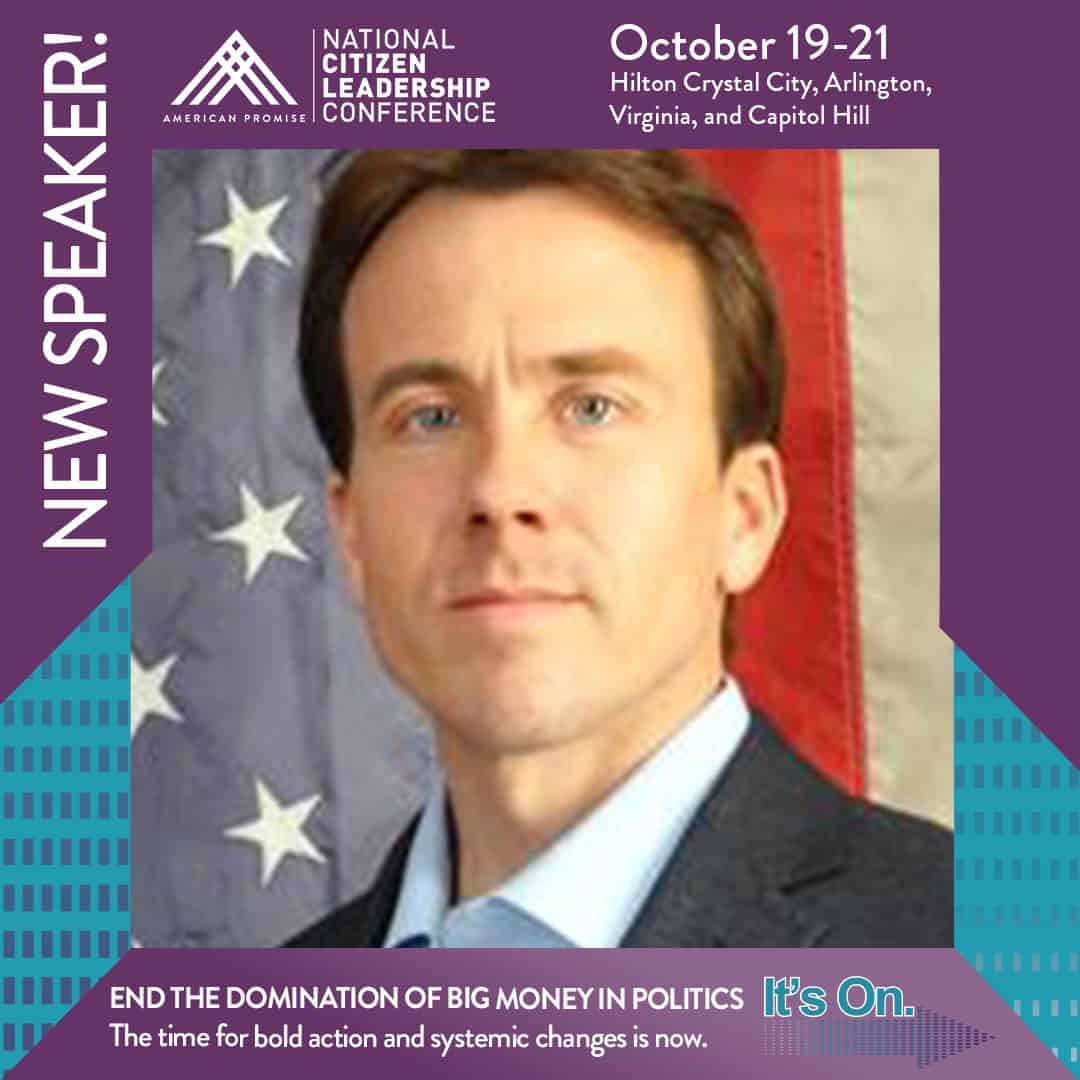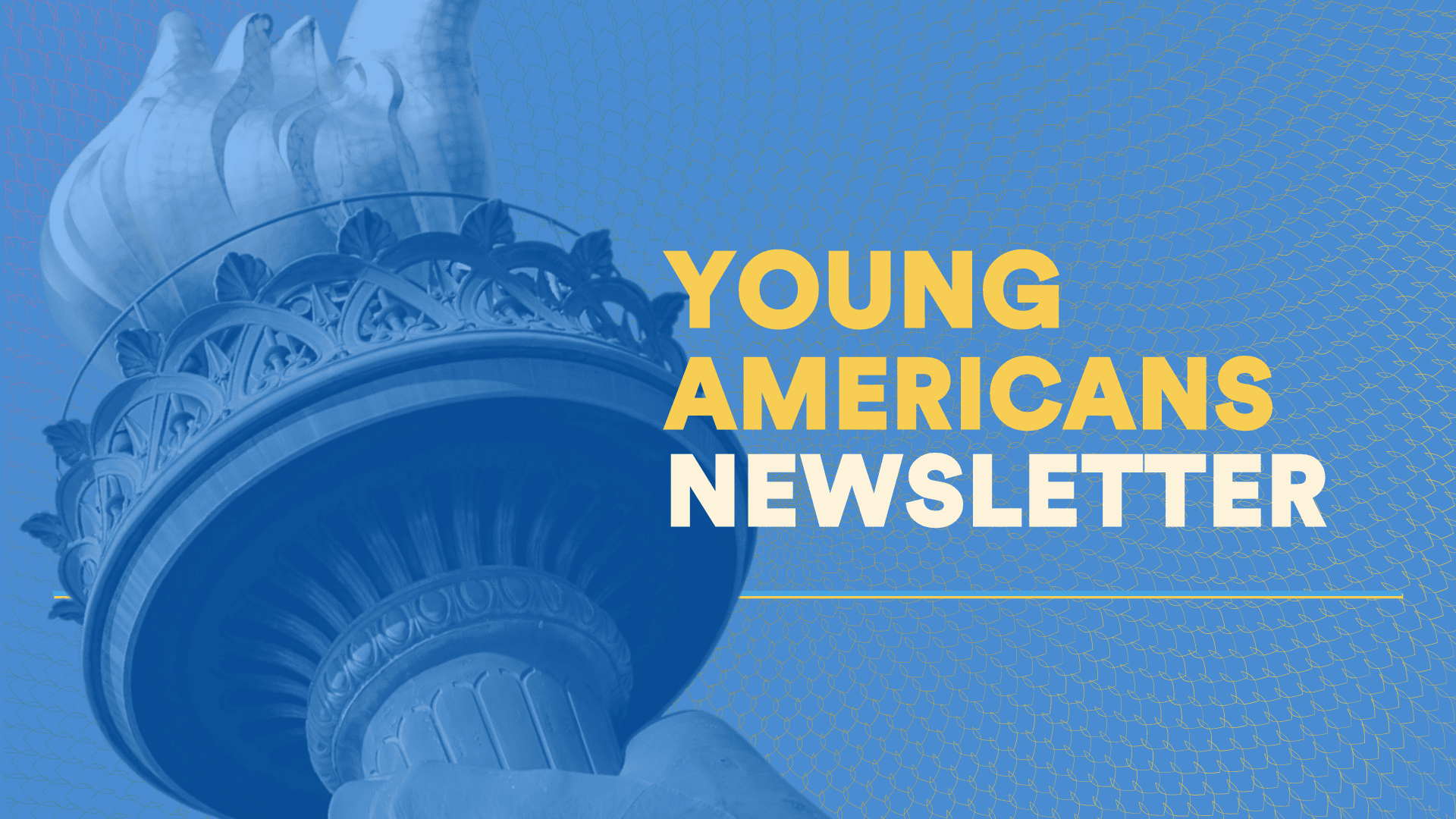At the 2019 National Citizen Leadership Conference, Oct. 19-21 in the D.C. metro, current and former politicians will join democracy reform leaders to advance the 28th Amendment to get big money out of politics. Among the NCLC speakers is Alan LaPolice, former candidate for Kansas’ 1st Congressional District, and an educator, veteran and farmer.
Alan LaPolice made campaign finance reform a focal point of his 2018 bid to represent Kansans in the 1st Congressional District, explicitly calling for the 28th Amendment on the campaign trail.
“My primary goal, once elected, is I’m going to move immediately for the 28th Amendment to the Constitution,” LaPolice said at a campaign event. “I do not take altering the Constitution lightly, but it is imperative that the 28th Amendment overturns Citizens United v. the Federal Election Commission and abolishes McCutcheon v. the Federal Election Commission.”
While LaPolice did not win that election, he has not stopped fighting for the amendment. As a speaker at our National Citizen Leadership Conference, Oct. 19-21 in the D.C. metro, LaPolice will share his firsthand experience with big money in politics and the corrosive effect it has on citizen power in our representative democracy. Below, LaPolice shares his thoughts on what’s at stake if we don’t get big money out of politics.
Why is the issue of getting big money out of politics important to you?
No matter what issue is important to you, whether it’s climate change, never-ending war, national debt, education, healthcare, farming—literally anything—your issue will never be dealt with as long as money is king in Washington. As long as it takes millions of dollars to get and stay elected, as long as it takes tens of millions of dollars to adequately buy favorable legislation, your issue will take a back seat to what big money wants. I personally want a future in which my kids, along with your kids and everybody else’s kids, have the promise of life, liberty and happiness, and the hope that democracy brings. My experience in politics has made concrete my belief that if we the people don’t remove, or at least curb, the toxic, corrupting power of money in politics, we can be all but certain that we won’t keep our promise to future generations.
What can citizens do to help get big money out of politics?
The first thing one must do to solve a problem is recognize what the problem is. Hyperpartisanship alone is not the problem. The problem is that the very existence of our duopoly—this tragic two-party system, all-others-be-damned—demands the corrupting influence of toxic money. It is a self-perpetuating cancer and will not be cured by one side getting more cancerous. We must recognize that both major parties must return power to the people. We must acknowledge that loyalty to party ensures disloyalty to country. We must demand that if a party can’t generate a candidate allowed to be independent of the party chains, we will withhold our vote for all candidates of that party and give them to any alternative. We must stop being slaves to our parties and start being patriots to our nation.
What most excites you about the future of America where we the people govern?
We are at an inflection point in the progression of this great nation. I feel we literally have nowhere to go but up. Voter participation has been going down since I was born. Trust in government has eroded ever since Watergate, when I was just a baby. But we are an incredibly resilient nation. We’ve overcome so much, and we’ve always done it as one nation—unified and strong. What we have been given with this corruption and unprecedented deformation of our great republic is the opportunity to engage, inspire and rebuild our own government, modeled after our modern, inclusive, diverse society. We can aspire to live up to the words of the founding fathers and build a more perfect union.






